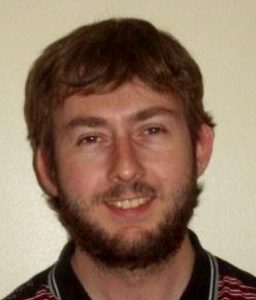More information should be made available in equity terms to the global health community about how money invested in research for health is collectively spent and how much benefit emerges from the research itself
By Michael Head
Senior Research Fellow
Clinical Informatics Research Unit and Global Health Research Institute
Faculty of Medicine, University of Southampton, UK
Equity in Investments – a Need to Map the Research Landscape for Health
Billions of dollars are invested in health research every year, but we (the global health community) have very little idea in how that money is collectively spent and how much benefit emerges from the research.
It is, of course, important to have that data and a viewpoint on the research landscape. Knowledge of what has been funded will show the strengths within a portfolio, show where the skillsets and infrastructure lie, and where the collaborations are taking place. A description of the research landscape will also, importantly, show what hasn’t been funded. Where are the evidence gaps, and why? Is research not feasible in that setting? Does the technology not quite come up to scratch yet, but might do in five years’ time? Has no one really considered that question before and thus a key burden of disease been forgotten somewhat?
To provide some examples – in 2018 and via the Research Investments in Global Health study (ResIn), I co-authored a report covering $3 billion of pneumonia research funding across 2000-2015, awarded by funders in the G20 and EU nations.1 We showed how in sub-Saharan Africa, The Gambia was the country receiving the greatest focus for research related to pneumonia, whilst countries such as Chad and Central African Republic were involved in virtually no pneumonia research over the 16 year time-period of our dataset. However, there is certainly plenty of pneumonia in both countries.
Similarly, in 2017, we published an article in The Lancet Global Health that looked at malaria funding for both research, and for malaria control, across sub-Saharan Africa.2 Here, for both types of financing, countries across west and east Africa were clearly global health hubs and recipient of greater amounts of investment (for example, Tanzania, Uganda and Kenya), but Chad and Central African Republic were again lacking in being the focus of funding, despite these nations having a large burden of malaria-related disease.
Clearly, these two countries are very difficult to invest in. They have significant political and socio-economic difficulties, and little infrastructure or experience to do large-scale research. The answer cannot be to simply throw money at the problem. Investments must be smart, targeted, carefully thought out. I often finish my presentations with the phrase “We must invest wisely”. Our data can provide some answers in terms of quantifying the landscape and highlighting research strengths, and evidence and investment gaps. This data can then lead to conversations across a range of global health stakeholders about findings solutions (for example, small-scale in-country capacity building, or encouraging partnerships between universities in resource-poor settings with institutions in the global north). When considering the distribution of limited resources, in this case focusing on money, equity is important and we need better data to more fully consider the problem and apply solutions.
Through ResIn, we are currently working through an analysis of all infectious disease research 2000-2017. This will cover around 80 000 separate awards covering approximately $100 billion of research funding. We are likely to publish our findings in 2019, and believe that the dataset and results will be a useful resource for funders, policymakers and researchers across the globe.
Author
Dr Michael Head is a Senior Research Fellow based in the Clinical Informatics Research Unit and Global Health Research Institute at the Faculty of Medicine, University of Southampton, UK. He co-founded the ResIn (Research Investments in Global Health) study and has led the development of research investment analyses, presenting the study findings at WHO headquarters in Geneva, Wellcome Trust in London, and to European Commission colleagues in Brussels. He also has an interest in scabies research, and vaccines and the activity of anti-vaccination activists.
Funders
The pneumonia study was funded by the Bill & Melinda Gates Foundation, and the malaria project was funded by the Royal Society for Tropical Medicine and Hygiene.
References
1 Rebecca J Brown, Michael G Head. Sizing Up Pneumonia Investment. Southampton, 2018 DOI:https://doi.org/10.6084/m9.figshare.6143060.v1.
2 Head MG, Goss S, Gelister Y, et al. Global funding trends for malaria research in sub-Saharan Africa: a systematic analysis. Lancet Glob Heal 2017; published online June. https://www.ncbi.nlm.nih.gov/pmc/articles/PMC5567191/.
